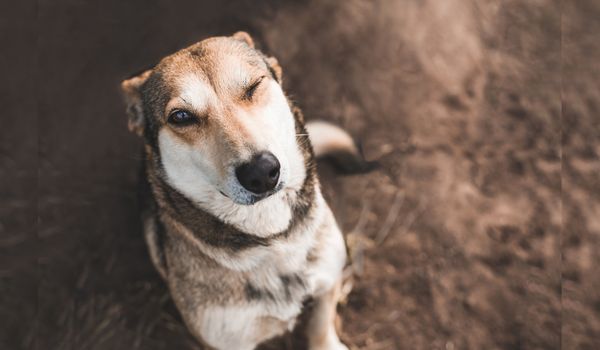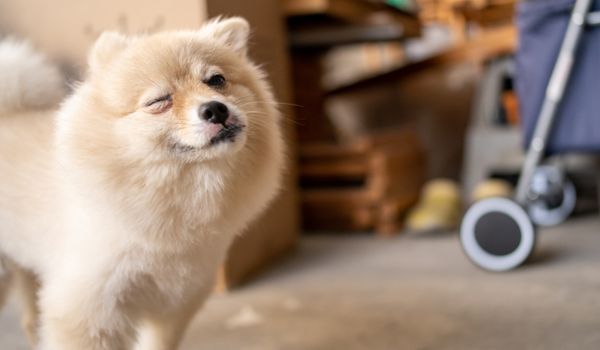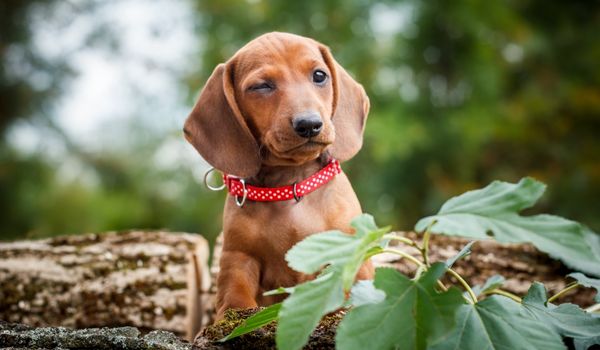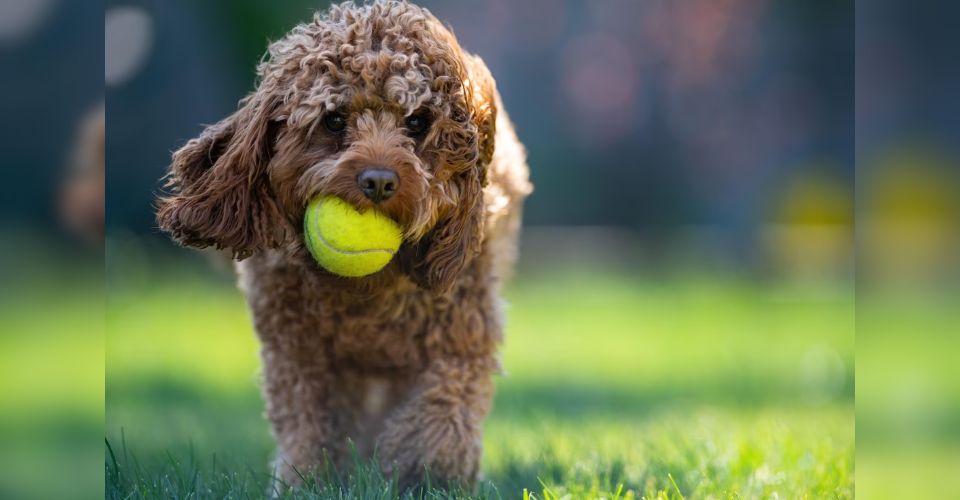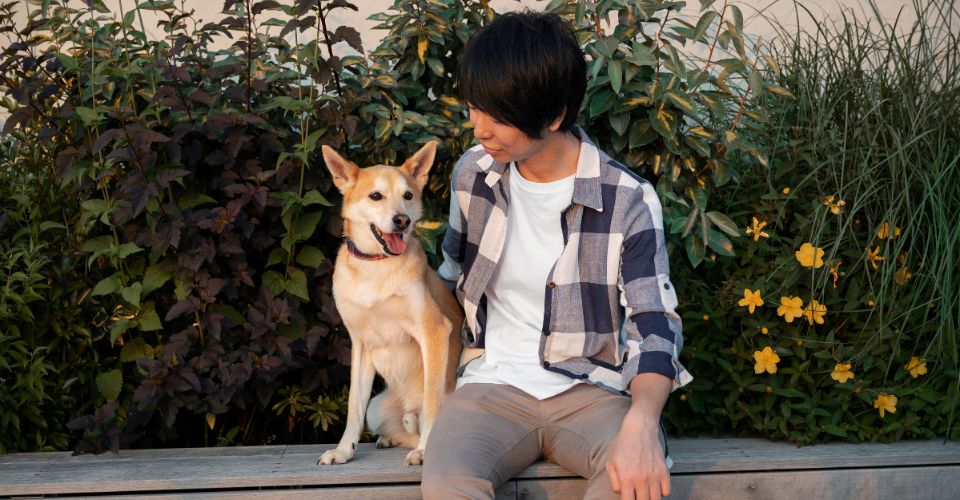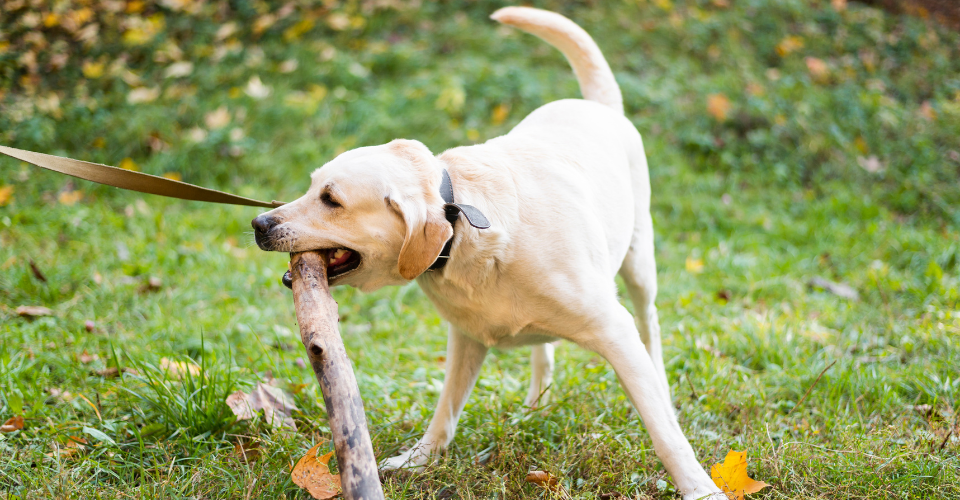Like humans, dogs can make various facial expressions, for instance, winking. Yes, winking is an adorable thing, and it may cheer up and surprise you. If it is deliberate and intentional, it could be a sign of love, seeking attention, or happiness. However, dogs also wink due to health problems.
If you have recently caught your dog winking, you might wonder: Why does my dog wink at me? Is it a deliberate wink or triggered by any illness?
To give you a brief answer, dogs wink for many reasons. Your dog may want to show submission, seek attention and love, or want to play. He could also wink if he is happy, tries to imitate you, or want to show gratitude. But if your dog is winking incessantly, this can be a dry eye, the presence of a foreign body in his eye, an injury, some sort of eye infection, or an allergy.
Let’s have a look at why your dog winked at you.
Why Does My Dog Wink At Me?
Humans have domesticated dogs for over 33,000 years. Given this long stay with humans, they have learned different gestures and forms of communication with their human folks. Winking is one of them—a charming style of contact with humans.
But this ‘taking up human gestures’ has altered their anatomical structure, albeit not too apparent. For example, the muscles responsible for winking are not found in wolves, the ancestors of dogs. But it is found in dogs.
According to research published by the Proceedings of the National Academy of Sciences (PNAS) says, “based on dissections of dog and wolf heads, we show that the levator anguli oculi medialis, a muscle responsible for raising the inner eyebrow intensely, is uniformly present in dogs but not in wolves.”
This gives credence to the hypothesis that different facial expressions, such as sadness and winks, were taken up by dogs after humans domesticated them. The muscles responsible for producing such expressions developed over time.
But this theory only explains how dogs can wink and not why. Let’s inspect some of the reasons why your dog may wink at you.
1. Dogs Wink to Show the Submission
Winking is a sign of submission among dogs while maintaining eye contact with each other is a sign of authority and aggression. Staring is the start of a fight between dogs. However, if one dog breaks the stare and wink (a gesture of submission), the other will cease the fighting. If there is no wink, the fight follows.
Therefore, when you and your dog stare at each other, he will wink or bend his head. Breaking a stare is a sign of submission, meaning dogs consider their owners the pack leader.
2. Dogs Wink to Imitate You
We know that dogs are more intelligent than other animals; they try to imitate their owner’s behavior and follow their routine. Thus, if your dog winks at you, you might have winked at him earlier.
You could also have winked at someone else, but your dog noticed and emulated it.
3. Dogs Wink to Seek Attention and Love
Sometimes your dog may wink at you to get your attention and love, as he has learned to wink while imitating you. He will blink more if he receives love, cuddling, and more care from you and other people.
A study shows that humans’ love and attention to their dogs affect their facial expressions. So, if you give more attention to your pooch, he will show more facial expressions, including winking.
4. Happy Dogs Also Wink
A happy dog might wink at you, especially if he considers you the immediate cause of the happiness. You might catch him winking at you if your canine is excited, happy, or in a good mood. But how will you know that my dog is winking because of happiness and not of any suffering?
Look for the following signs:
- Your pooch will appear at ease and relaxed
- Hanging ears and a gentle look
- Wrinkleless face
5. Your Dog Wants to Play
Similar to winking due to happiness, if your dog winks at you in a good mood, he may want to play. Some dogs will communicate with different gestures, like lowering their front legs and raising their back to tell them they are ready to play ball or go for a walk.
6. Dogs Wink Due to Many Health Problems
Dogs wink but not always because of fun, happiness, or love. They can also wink due to many eye-related diseases, some of which we will discuss in the following lines.
Your Dog May Have Entropion
Entropion is a genetic and secondary disease that can infect dogs at any time. In this disease, your dog’s eyelid grows inward and affects the cornea of the eye, which keeps the eye close. Trying to open the affected eye, your dog might appear to be winking.
Boxers, Bloodhound, Chow Chow, Bull Mastiff, Great Danes, Golden Retriever, English Bulldogs, and a few others are vulnerable to developing Entropion.
Your Dog’s Eye Is Infected by Blepharitis
If Blepharitis infects your dog’s eye, he will wink. Blepharitis means eyelid inflammation, an eye disease that can impact one or both eyes. It makes the eye red, swollen, and itchy. Allergies, infections, tumors, and innate abnormalities cause Blepharitis.
Your Dog May Wink of Enophthalmos
Enophthalmos is a condition in which the canine eye will be sunken in. Their eyelids will be swollen, itchy, and look pink. Enophthalmos symptoms are eye dryness, double vision, and an imbalance in facial expressions.
Cancer, dehydration, eye injuries, and Horner’s syndrome cause Enophthalmos in dogs, but it can be congenital too. It is treated by surgery, and if your pooch infections lead to cancer, then removal of the eyeball is the only solution.
Your Dog’s Eye Is Dry
You may confuse the blinking of your dog with winking, but your pooch’s eye may be infected with a dry eye condition. It is a disease in which a dog’s eye cannot produce enough tears for lubrication of the eye, which leads to a dry, painful eye.
When the immune system invades the tear glands in dogs, it makes their eyes ‘dry eye’. It is not curable but can only be managed with drops and care.
Your Dog’s Eye Is Irritated by Some Foreign Body
Dogs wink if grass and other debris get stuck in the eyelid, making your puppy’s eye swollen, teary and red. They want to expel the foreign body, making them wink.
Your Dog’s Eye May Be Injured
If your dog blinks more and scratches his eye, you must check if there is an injury in his eye, which, if not treated, may lead to a severe infection.
Symptoms of an injured eye are incessant blinking, avoiding radiant light, and release of green or yellow liquid.
Your Dog Is Infected With Corneal Ulcer
Your dog may wink due to a corneal ulcer, a disease in which a dog’s eye cornea gradually corrodes.
In Corneal Ulcer, your puppy’s eyes will become red, teary, and excessively blink. Your dog will also have a low appetite, swollen eyelids, and shut eyes.
Glaucoma Causes Winking in Dogs
Dogs blink their eyes when they are infected with Glaucoma, a condition in which the eye produces more liquid than usual. When pressure is increased by fluid inside the eye, Glaucoma is caused.
Symptoms of Glaucoma are redness of the whites of the eye, swelling and bulging, rubbing of the eye, low appetite, and many more.
It is a severe disease; if you find it in your furry, take him to the vet quickly.
Your Dog May Have Conjunctivitis.
Lastly, your dog may wink at you because of Conjunctivitis, a common condition of swelling (inflammation) of the conjunctiva. Conjunctiva is a tissue that covers the eyeball and eyelid. During Conjunctivitis, this tissue becomes pinker, itchy, and swollen.
How to Teach Winking to Your Dog?
Winking makes dogs more adorable as long as it is not because of a health issue. If you want to teach your dog to wink, that is possible. Megan Conard, a veterinarian at Hello Ralphie, says that dogs can easily learn to wink.
Megan Cornard suggests that a nonverbal act must accompany a verbal command when asking your canine to wink. For instance, says that by touching the mouth or near the nose, probably your dog might wink out of instinct. If he does, say “good job” and reward him.
Now, while touching his muzzle with their whisker again, say ‘wink’ and treat him with another positive reinforcement when he winks again. Repeat the process consistently, and you will be able to remove the touch, and only verbal signals will be enough to make him wink.



